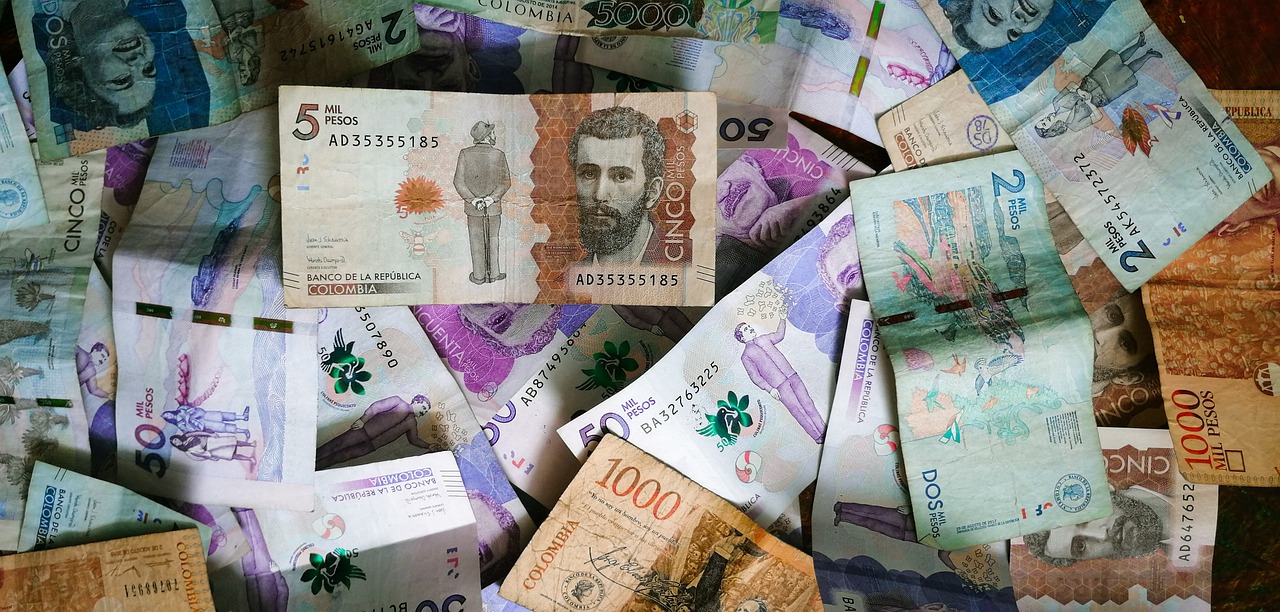Exploring the Chinese Yuan’s Global Influence and Reserve Currency Potential
GPT_Global - 2025-10-23 13:30:39.0 19
Why do some countries hold Chinese yuan as part of their foreign exchange reserves?
```htmlThe Chinese yuan (CNY) has become an increasingly important currency in global finance. Many countries now hold it as part of their foreign exchange reserves. But why is this happening? The rise of China as a global economic powerhouse has led to a greater demand for its currency, making it a valuable asset for countries looking to diversify their reserves.
One reason is China’s role in international trade. As one of the largest trading nations, China’s economic influence affects many countries. Holding yuan helps countries engage in trade with China more efficiently, reducing currency conversion costs and increasing economic ties.
Additionally, China’s push to internationalize the yuan by introducing the currency into global markets, such as through the Belt and Road Initiative and the establishment of offshore yuan centers, has encouraged central banks to hold yuan as a reserve. For remittance businesses, understanding this global shift is key to providing efficient cross-border payment services, enabling smoother and cost-effective transfers for customers.
Ultimately, the Chinese yuan’s growing acceptance as a reserve currency signifies its stability and relevance in the global economy, making it a strategic asset for countries worldwide.
```
How is the exchange rate between the US dollar and the Chinese yuan determined?
The exchange rate between the US dollar (USD) and the Chinese yuan (CNY) is determined by a combination of market forces and government policies. The People's Bank of China (PBOC) plays a significant role in managing the yuan's value, utilizing a managed float system. This means that while the exchange rate is influenced by supply and demand in the foreign exchange market, the PBOC may intervene to ensure stability.
Factors influencing this exchange rate include China's economic performance, interest rates, and global trade dynamics. Additionally, geopolitical events and global investor sentiment toward China’s economy can cause fluctuations. Businesses and individuals involved in remittance services closely monitor these changes, as variations in the exchange rate can affect the amount of money sent or received between the two countries.
For remittance businesses, understanding the nuances of the USD to CNY exchange rate is crucial. Fluctuating rates can impact the cost of sending money from the US to China and vice versa. By keeping track of these trends, remittance companies can offer competitive rates, providing value to their customers while staying in line with market movements.
Can the Chinese yuan become a global reserve currency to rival the US dollar?
In recent years, the Chinese yuan has gained prominence in global markets, leading to growing discussions about its potential to become a global reserve currency that could rival the US dollar. As China strengthens its economic power, many financial analysts speculate that the yuan could eventually challenge the dominance of the US dollar in international trade and remittance transactions.
One of the key factors driving this potential shift is China's push for global economic influence. The country’s Belt and Road Initiative, along with its increasing trade agreements with countries worldwide, has increased the use of the yuan in cross-border transactions. However, for the yuan to become a true global reserve currency, it would need to gain the trust of global investors and become more widely accepted for international payments.
For the remittance industry, the rise of the yuan could bring significant changes. If the yuan becomes a more established global currency, remittance businesses might need to adapt by incorporating yuan-based transfers, providing new opportunities for sending money to and from China and other countries adopting the currency.
Ultimately, while the yuan's ascent as a global reserve currency is a possibility, it faces hurdles such as capital controls and political considerations. Only time will tell whether it can genuinely rival the US dollar in the global financial landscape.
How does the Chinese government control the value of the yuan in international markets?
In recent years, the Chinese government has implemented various measures to control the value of the yuan (CNY) in international markets. One of the primary ways this is done is through its currency peg and intervention in foreign exchange markets. By setting a reference rate for the yuan, the government can influence its value in global trade and investment. This strategy impacts businesses, especially in the remittance industry, where exchange rates play a crucial role in the value of money being sent abroad.
Additionally, China’s central bank, the People’s Bank of China (PBOC), actively buys and sells yuan in international markets to maintain a stable currency. This helps prevent excessive fluctuations that could destabilize trade or create uncertainty for businesses and individuals sending remittances. The government’s tight control over the yuan also affects remittance fees and the speed of money transfers between countries.
For remittance businesses, understanding these controls is essential in navigating exchange rate fluctuations and providing customers with competitive, reliable services. With the Chinese government influencing currency values, businesses need to stay informed to offer accurate exchange rates and optimize money transfers for their clients.
How does the US dollar to yuan exchange rate affect the global price of commodities?
The US dollar to yuan exchange rate plays a significant role in the global price of commodities, influencing businesses and remittance services. A stronger dollar compared to the yuan can lead to lower prices for commodities, such as oil, metals, and agricultural products. This is because commodities are typically priced in dollars. When the yuan weakens against the dollar, importing countries may face higher costs for these goods, affecting global trade dynamics.
For remittance businesses, fluctuations in the US dollar-yuan exchange rate can impact the amount of money sent to recipients in China or other countries with a similar exchange rate structure. When the yuan weakens, recipients may receive less value for their dollar, making remittances less effective in supporting families. On the other hand, a stronger yuan can benefit recipients by increasing the value of their funds.
Understanding how the exchange rate impacts commodity prices and remittance value is crucial for individuals and businesses involved in global financial transactions. Remittance businesses should monitor these shifts to offer the best value to their customers, ensuring the effectiveness of cross-border transfers in the face of changing currency dynamics.
What role does the International Monetary Fund (IMF) play in the value of the Chinese yuan?
The International Monetary Fund (IMF) plays a crucial role in influencing the value of the Chinese yuan by monitoring China’s economic policies and providing assessments that impact investor confidence. As part of its global financial oversight, the IMF evaluates whether China’s currency practices align with international standards, ensuring fair and stable exchange rates. These evaluations can affect how global markets perceive the yuan’s stability, which is vital for international trade and remittance activities.
For remittance businesses, the IMF’s outlook on the yuan is significant. When the IMF signals that China’s currency policies are stable, it boosts confidence among international investors and remittance providers. A stable yuan helps reduce exchange rate risks and ensures more predictable transfer costs for customers sending money to China. Conversely, if the IMF reports concerns about China’s currency valuation, remittance providers may need to adjust their rates or hedging strategies to protect clients from volatility.
Overall, the IMF’s role in shaping perceptions of the yuan’s value directly impacts remittance flows, pricing strategies, and customer trust—making it a key factor for businesses operating in the global money transfer industry.
How do Chinese monetary policies influence the value of the yuan?
Chinese monetary policies play a crucial role in determining the value of the yuan, which directly impacts global remittance transactions. The People's Bank of China (PBOC) uses various tools, such as interest rates and reserve requirements, to control inflation and stabilize the economy. By adjusting these policies, China can influence the yuan's exchange rate, making it stronger or weaker against other currencies.
For businesses in the remittance sector, fluctuations in the value of the yuan can significantly affect the cost and value of cross-border money transfers. A stronger yuan means that recipients abroad can receive more value for their money, while a weaker yuan can reduce the amount remittance recipients get.
Understanding how Chinese monetary policies impact the yuan’s value helps remittance services better plan and forecast exchange rates. This knowledge enables businesses to offer competitive rates and provide accurate predictions for customers sending or receiving money.
By keeping an eye on China’s monetary policy, remittance businesses can stay ahead of market trends and better serve their customers, making the most of currency value changes to ensure efficiency in international money transfers.
About Panda Remit
Panda Remit is committed to providing global users with more convenient, safe, reliable, and affordable online cross-border remittance services。
International remittance services from more than 30 countries/regions around the world are now available: including Japan, Hong Kong, Europe, the United States, Australia, and other markets, and are recognized and trusted by millions of users around the world.
Visit Panda Remit Official Website or Download PandaRemit App, to learn more about remittance info.


